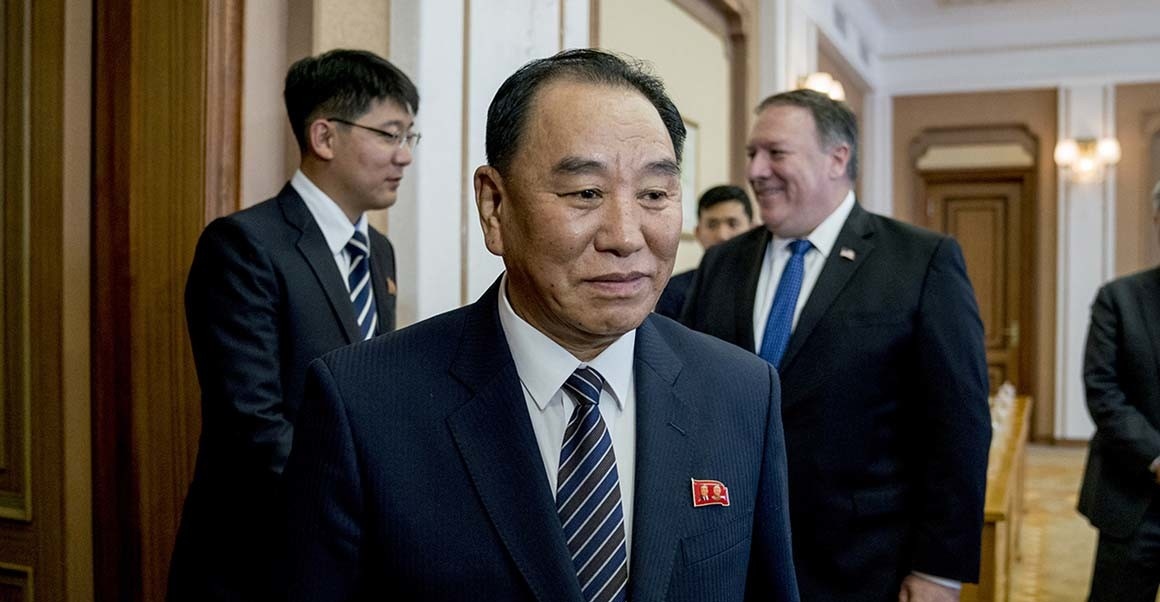North Korea envoy in US
January 19, 2019 | Expert Insights

A North Korean envoy arrived in Washington on January 17 for expected talks with Secretary of State Mike Pompeo and a possible encounter with President Donald Trump aimed a laying the groundwork for a second US-North Korea summit.
Background
The relationship between the US and North Korea has always been fractious. During the war between North and South Korea in 1950, US forces successfully intervened on behalf of South Korea. The North Korean nuclear program has been a source of concern for the US and the international community for decades. North Korea has remained an isolated nation and its nuclear program has especially been a concern for the international community. In 2017, North Korea has launched 23 missiles in the course of 16 tests. In November 2017, North Korea after seemingly two months of silence, tested its most potent missile yet. The Hwasong-15 missile reached an unprecedented height of almost 4,500 kilometers (2,800 miles). The Hwasong-15 is a new type of intercontinental ballistic missile. This represents a serious escalation in the stability of the Korean peninsula.
Trump has taken an aggressive stance while countering North Korea. In 2017, he said that North Korea “will be met with fire and the fury like the world has never seen.” North Korea responded by announcing that plans were underway for it to strike Guam, a US territory. Both Kim Jong Un and Donald Trump were locked in an extended war of words in 2017, with both threatening wars.
2018 was breakthrough year in US-North Korean relations as it saw President Trump and Supreme Leader Kim Jong Un meeting at Singapore for the first time.
Analysis
Mr. Kim Yong Chol, Pyongyang's lead negotiator in denuclearisation talks with the US, was due to meet Pompeo and could also go to the White House on January 18. This is seen as a sign of potential movement in a diplomatic effort that has appeared stalled for months.
The North Korean visit could yield an announcement of plans for another summit between Mr. Trump and Mr. Kim Jong Un, the source said, speaking on condition of anonymity.
There has been no indication, however, of any narrowing of differences over US demands that North Korea abandon a nuclear weapons programme that threatens the US or Pyongyang's demand for a lifting of punishing sanctions.
Mr. Kim Yong Chol, a hardline former spy chief, arrived in Washington on a commercial flight from Beijing, South Korea's Yonhap news agency reported. Yonhap and other South Korean media said he was greeted at Dulles airport by Mr. Stephen Biegun, the US special representative for North Korea. Mr. Pompeo had planned to meet his North Korean counterpart to discuss a second summit last November, but the meeting was postponed at the last moment.
Diplomatic contact was resumed after Mr. Kim Jong Un delivered a New Year speech in which he said he was willing to meet Mr. Trump "at any time", South Korea's ambassador to the US, Mr. Cho Yoon-je, told reporters last week.
Mr. Kim Yong Chol was last in Washington in June, when he delivered a letter from Mr. Kim Jong Un to Mr. Trump - that opened the way for the June 12 summit in Singapore. That meeting yielded a pledge from the latter to work towards denuclearisation of the Korean peninsula and Mr. Trump declared the next day that there was "no longer a nuclear threat from North Korea". There has been little obvious progress since, however, which was underlined by the Missile Defence Review unveiled this week.
Vietnam, which has good relations with both the US and North Korea, has been widely touted as the most likely venue for a second meeting between Mr. Trump and Mr. Kim Jong Un.
Assessment
Our assessment is that North Korea and the US will agree to another meeting but neither party will cede their basic demands. The US is unlikely to lift sanctions before North Korea denuclearizes, whereas North Korea is unwilling to denuclearize before the sanctions are lifted. We feel that these meetings should be seen for what they are, a verification out of each other’s position on denuclearization to see if a summit is workable for both the countries.








Comments